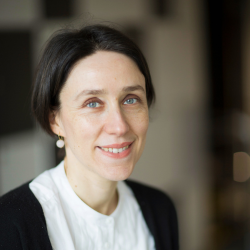.png)
Dissecting human haematopoietic stem cell function at single cell resolution Professor Elisa Laurenti (University of Cambridge) presents her work on investigating how cell cycle regulation, inflammation & ageing affect human haematopoietic stem cells unique molecular and functional properties. Hosted by Professor Dave Kent.
Event details
Abtsract
Rare haematopoietic stem cells (HSCs) produce all of our red blood cells, platelets and immune cells, at a staggering rate of one trillion blood cells per day. Work from many groups including ours, has demonstrated that diversity in HSC behaviours is key to sustain blood formation over life. In this talk I will first discuss how and why human HSCs lose function ex vivo. This phenomenon represents a major barrier for the success of ex vivo HSC gene therapy and for the development of HSC expansion protocols fit for clinical applications. I will present data that identify a time window of adaptation to the culture environment, during which human HSC identity and function are remodelled. I will also show that adaptation can be pharmaceutically targeted to improve HSC function in clinically-relevant culture conditions. In the second part of my talk, I will focus on how mutations are ineluctably acquired in human HSCs with age and how that changes their function. Specifically, I will discuss how DNMT3A R882 mutations alter the myeloid differentiation kinetics of human HSCs.
About the speaker

Professor Elisa Laurenti
Elisa received her Masters in Biological Sciences from the University of Bologna in 2003. She then undertook her PhD under the supervision of Prof. Andreas Trumpp at the Swiss Institute for Cancer Research in Lausanne, Switzerland. In 2010 she joined Dr John Dick’s laboratory at University Health Network (Toronto, Canada) where she became interested in the study of human hematopoietic stem cells. In 2014, she established her own research group at the Cambridge Stem Cell Institute and Department of Haematology of the University of Cambridge. She is currently a Wellcome Trust and Royal Society Sir Henry Dale Research Fellow. In 2021, she received the International Society for Experimental Hematology Janet Rowley Award which recognises outstanding early career principal investigators and their contributions to the field of haematology. Elisa is the Academic Champion for Public Engagement at the Cambridge Stem Cell Institute and chairs the Public Engagement Steering Committee.
Her lab is currently investigating the unique molecular and functional properties of human haematopoietic stem cells (HSCs) and progenitors during foetal life, throughout adulthood across sites of haematopoiesis as well as during ageing. Another area of interest is the study of HSCs’ cellular and molecular responses to stress, with the goal to improve HSC ex vivo expansion and gene therapy protocols.
Partners
